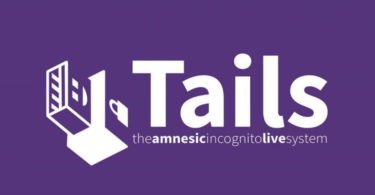Mainstream search engines such as Google, Yahoo or Bing save your IP address, search queries, and other identifying information which, if accessed by authorities or third parties, could be dangerous to journalists working in unfriendly places. Fortunately, secure search engines exist, and RSF, along with tech expert Ben Finn, has compiled a list of four recommended search engines.
Mainstream search engines such as Google, Yahoo or Bing make money primarily through advertising. The more effective the advertising, the more advertisers will pay. For this reason, commercial search engines often build user profiles enabling targeted advertising and custom search results. Even without users being logged in, search engines can recognise them based on their IP address, cookies, digital fingerprint, and other online activity.
Although this tracking is intended for advertising purposes, rather than tracking users’ identities, the information collected can be handed to other parties, including governments, potentially threatening the privacy of journalists and their sources.
Private browsing mode isn’t sufficient
Browsers are software developed to access information on the internet based on queries made through search engines. Commercial browsers like Chrome, Safari and Firefox offer ‘private browsing mode’ which hides the search history from other users of the same device.
Many may think that ‘private browsing mode’ can offer some form of online security, but this does not actually hide activity from search engines, websites, or ISPs (internet service provider), it merely deletes the browsing history from the device. Instead, journalists should protect themselves from data tracking by using a VPN (virtual private network) or a secure search engine.
Why you should switch to a secure search engine
Commercial browsers usually provide a certain search engine by default, which is usually their own software, but can be replaced by another search engine in the settings. Secure search engines are the best way to go, as they keep tracking and data collection to a bare minimum. Therefore, even if an authority requested a user’s search history, there would be no data to show.
These search engines also don’t filter search results based on previous activity, instead they rank search results solely on relevance to the search query, for this reason they are safer than Google but have less personalised and accurate results. Lastly, secure search engine aggregators protect the user’s data from being collected by other sites, since it pulls results from other existing search engines.
Recommended secure search engines
- MetaGer. A search aggregator run by a German non-profit organisation with strong policies for transparency, and against censorship. It compiles its search results from Bing, Yahoo, and a few other existing search engines, and doesn’t filter or prioritise results based on the user.
- Mojeek. Has its own index, and doesn’t rely on any external search engines. Though its searching ability is more limited than others on this list, its results are unaffected by the biases and ranking algorithms of other search engines, and it does not track its users at all.
- Ecosia. A meta search engine that exclusively searches using Bing, and therefore provides the same experience as using Bing but with greater privacy. It donates profits from ad revenues to tree-planting charities. Some user information such as IP addresses and search queries, are collected to aid its effectiveness as a search engine, but it anonymises this all within a week, and does not sell any user information.
- DuckDuckGo. A popular meta search engine which pulls results from hundreds of external search engines including Bing and Yahoo, and has a layout that functions a lot like Google. It does not collect IP addresses, but does track search queries, although not in a “personally identifiable way”. DuckDuckGo does filter its search results, artificially burying links it deems “disinformation”.
“Secure” search engines to avoid
- Google. Used by default by most commercial browsers like Safari, Chrome, and Firefox, Google is notorious for tracking every click a user makes and utilising algorithms to feed the user personalised advertisements.
- Search Encrypt. The company controlling Search Encrypt is not well known. Its policies imply that it may collect search information and IP addresses and user information may be shared with third parties.
- StartPage. Previously popular and highly ranked for privacy. A large shareholder is Privacy One Group Ltd, which is a marketing company heavily involved in data mining and targeted advertising, and known for gathering as much information about users as possible.
Written by Benjamin Finn. From Houston (USA), Benjamin has been in the IT field for a decade, during which his primary focus was the deployment of internal security tools across large enterprises. Over the last two years, he has been researching on how to maintain proper security in the context of an oppressive nation-state, specifically in the context of Myanmar. He has also been working with multiple groups in Taiwan to train them on proper security and safety measures.








